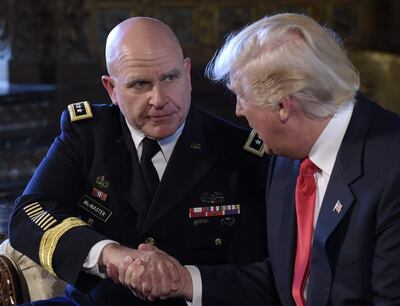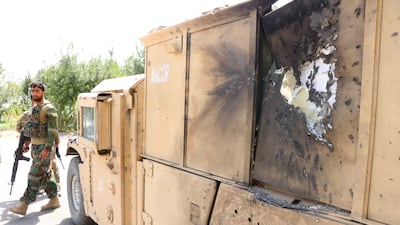Former US national security adviser HR McMaster said on Thursday that the fallout from the US withdrawal from Afghanistan will be devastating.
Mr McMaster is a retired lieutenant general in the US Army where he served for 34 years.
President Joe Biden has said he is committed to removing all troops from Afghanistan by August 31, but as the US moves out of the country, the Taliban continue to make lightning-fast gains.
The group has captured 10 provincial capitals in six days and now control more than half of the country.
On Thursday, Taliban forces captured the city of Ghazni, only 150 kilometres from the capital Kabul.
Recent US military intelligence has shown the Taliban could take the capital in a mere 90 days.
Mr McMaster, who served as national security adviser from 2017 to 2018 under former president Donald Trump, said what comes next may be worse than the bloody civil war that ravaged Afghanistan from 1992 to 1996.
“This will be that crisis on steroids,” the former head of the National Security Agency said during an event organised by the Wilson Centre, a Washington-based think tank. “Why? You know, in 2001, the population of Kabul was 500,000. Today, it's over five million.”
The UN reported that about 400,000 people have already been displaced in Afghanistan this year. Of those, 59 per cent are children.
“The last few days have seen a deadly escalation of fighting in Helmand, Kandahar, Herat, Kunduz and Nimroz provinces, adding untold suffering in a country where over five million people are already displaced internally,” said Antonio Vitorino, the director general of the UN's International Organisation for Migration.

Mr McMaster feared the US withdrawal could amount to a failure to meet the Responsibility to Protect doctrine signed by UN member states in 2005. The agreement calls on member states to prevent genocide, war crimes, ethnic cleansing and crimes against humanity.
“Where are the people in the Biden administration who were the authors of the [Responsibility to Protect] doctrine? Remember that right to protect after we stood idly by in a genocidal campaign in Rwanda?” he asked. “What are they saying now? Because I would imagine they were in on the decision about the complete withdrawal from Afghanistan.”
The Biden administration has repeatedly said the Afghan government needs to step up and take ownership of its future.
Last week, US Secretary of State Antony Blinken spoke with Afghanistan's President Ashraf Ghani and urged him to accelerate peace negotiations.
Mr McMaster slammed Mr Blinken and the Biden administration for failing to make the same demands of the Taliban.
“I think that this is an astonishing degree of what I call … strategic narcissism — you know, the tendency to define the world as we would like it to be and assume that what we do or decide not to do is decisive towards achieving a favourable outcome,” he said.
Mr McMaster went on to say the US needs to acknowledge that the Taliban have a say in the future of Afghanistan.
“This is evidence of our self-referential approach, an approach that does not acknowledge that others, like this brutal group, the Taliban, these mass murderers and [extremist] terrorists, they actually do have a degree of authorship over the future. I think we're watching the Afghan people pay the price for our self delusion.”









